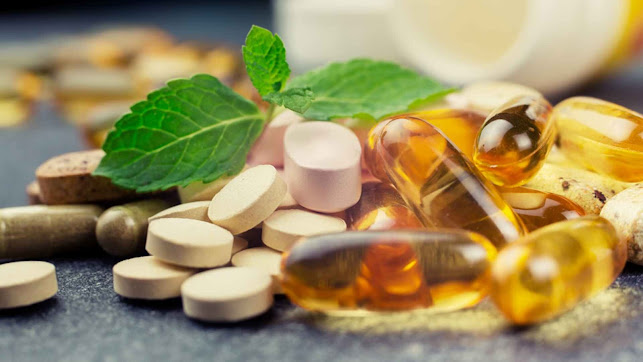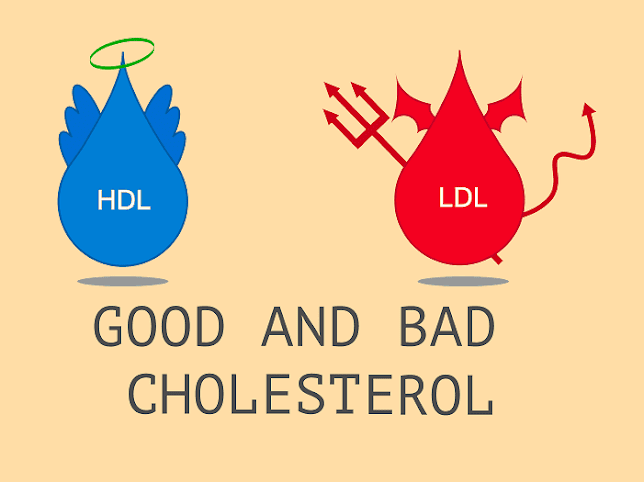Testosterone is essential for overall health and well-being. Low testosterone levels can have a negative impact on body composition, and as people age, low testosterone levels can lead to weight gain.
Low testosterone levels also have an impact on sexual function, resulting in decreased sex drive, fewer erections, and infertility.
Ways to Boost Testosterone Naturally
Staying active may aid in the increase of testosterone levels.
According to a recent study of 9,054 healthy-weight men aged 19 to 39, normal testosterone levels range between 264 and 916 nanograms per deciliter (ng/dL).
Drug companies promote testosterone-boosting products, and while these may help some people, they may also reduce the body's ability to produce testosterone naturally.
Furthermore, these medications do not come without risks.

According to a 2016 study, the benefits and safety of long-term use of testosterone replacement products are unknown.
Adopting some lifestyle habits that can improve overall health and well-being is the best way to boost testosterone levels.
1. Reduce your weight
2. Maintain an active lifestyle
According to a reliable source, increasing physical activity was more beneficial than losing weight in terms of improving testosterone levels.
However, it is important not to overdo it, as increased levels of exercise may result in low testosterone.
The same study discovered that long-distance runners may have low testosterone levels. The researchers hypothesized that this was due to a lack of energy and poor nutrition.
3. Getting adequate sleep
According to one study from the University of Chicago, men who do not get enough sleep can have a drop in testosterone levels.
Ten healthy 24-year-old men slept for 8 hours per night at home for one week before spending the next 11 nights in a lab. They slept for 10 hours per night for three nights, then only slept for 5 hours for the next eight nights. Doctors checked their blood every 15 to 30 minutes during their last 10 hours of sleep, as well as during the sleep-restricted session.
The researchers discovered that after only one week of sleep deprivation, daytime testosterone levels dropped by up to 15%. Normal aging, on the other hand, results in a 1% to 2% decrease in testosterone per year.
Making sleep a priority may aid in the maintenance of testosterone levels. People should aim for at least 7 to 8 hours of sleep per night. Anyone who is having difficulty getting enough quality sleep on a regular basis should consult their doctor.
4. Eat a well-balanced diet
Overeating and yo-yo dieting were found to disrupt hormone levels, according to a reliable source. This effect is most noticeable in athletes and people who engage in a lot of physical activity.
Diets that include mostly whole foods and provide a healthy balance of fats, carbohydrates, and proteins are the best. Eating a healthy and nutritious diet can help to balance all hormone levels in the body and promote long-term health.
5. Reduce stress
Long-term and chronic stress is hazardous to one's health and can cause a variety of problems.
Stress raises the level of the hormone cortisol, which regulates a number of processes, including immune response and metabolism.
Cortisol levels that are too high have a negative impact on testosterone. According to one 2016 study, stressful events contributed to erratic changes in testosterone levels in males.
58 male and female medical students filled out questionnaires and provided saliva samples while under exam stress in the two months leading up to their final exams.
The men in the study had significantly higher levels of salivary testosterone when subjected to exam stress, whereas the women had significantly lower levels.
According to the researchers, the stress response in male study participants resulted in aggression, emotional inhibition, and rumination, which could explain the gender differences.
6. Avoid using drugs and alcohol
Alcohol use affects the glands and hormones involved in male reproductive health, according to the National Institute of Alcohol Abuse and Alcoholism.
Furthermore, because of the effects it has on the body, such as causing hormonal reactions and cell damage, alcohol can cause low testosterone levels.
7. Supplements and vitamins
Getting at least 15 minutes of direct sunlight each day can also help keep vitamin D levels under control. Salmon and other fatty fish, as well as fortified milk and cereal products, are high in vitamin D.
DHEA is a hormone that aids in the production of testosterone as well as other hormones that influence body composition. DHEA levels, like testosterone levels, decrease as people age. In one study, DHEA supplements were given to a group of elderly men. The supplements had a small but significant positive effect on body composition, according to the researchers.
Eating healthy fats like fish and flaxseed may help the body use the DHEA it makes.
If the cause of the decrease is a deficiency, magnesium supplementation can help restore testosterone levels to normal.
According to one study published in the journal Biological Trace Element Research, taking supplements for at least one month may increase testosterone in all people. According to the report, people who exercise will experience a greater increase in testosterone levels than those who do not exercise.
Zinc deficiency, like magnesium deficiency, may contribute to a drop in testosterone. According to an older study from 2007, 4 weeks of zinc supplementation could prevent a drop in testosterone levels in sedentary men who exercise.
Both magnesium and zinc deficiency can be remedied through diet. Whole grains and dark leafy greens are high in magnesium. Zinc is also found in dark leafy greens, flax seeds, and pumpkin seeds.
Creatine is well-known for its small but consistent testosterone boosts. A 2006 study discovered that taking creatine supplements for at least 10 weeks resulted in higher levels of testosterone in college football players. Creatine is naturally found in salmon, tuna, and beef.
8. Encourage Higher HDL Cholesterol Levels
Even though the link is tenuous, significantly increasing HDL cholesterol can lead to heart disease. Anyone who wants to raise their HDL cholesterol naturally in order to increase testosterone should first consult with a medical professional.
9. Try Intermittent Fasting
It is difficult to maintain this boost on a consistent basis if the user is in and out of a dietary process known as ketosis. However, there is no evidence that a keto diet will increase testosterone levels.
10. Get Rid of Toxic Bacteria in the Gut
Probiotics, which aid in food metabolization, are one of the simplest ways to improve the bacteria in the gut. The microorganisms are required to use these nutrients, but they must be obtained through a supplement. They are naturally found in yogurt, pickles, and sauerkraut, but they can also be found in other foods.
11. Macadamia Nuts are a delectable treat
Individuals who dislike the taste of macadamia nuts can substitute Brazil nuts. They provide many of the same benefits as macadamia nuts, but they do not contain as many saturated fats.
12. Get Rid of Your Junk Food Addiction
Because of the advancement of the fresh food movement, people can now easily get fresh fruit or even a healthy salad at the drive-thru instead. Rather than passing up that opportunity on the way home from work, stock the fridge with lean meats and other healthy options to make it easier to stick to good habits.
13. Strawberries are delicious
Strawberries have a high nutrient content, including vitamin C, antioxidants, and fiber. They don't, however, have a lot of sodium or calories to add to the waistline.
14. Eat Some Dark Chocolate
Maintaining a healthy heart is essential for weightlifting, and it is also essential for maintaining testosterone levels.
15. Incorporate a High-Intensity Interval Training (HIIT) Workout into Your Routine
HIIT, or high-intensity interval training, is a workout that balances the short bursts of high-intensity workouts with short breaks. The key to this workout is to force the body to burn more calories without spending too much time on it. Some people incorporate this routine into their jogging routine, sprinting one minute and walking the next.
The body enters an anaerobic state during an HIIT workout, burning through more sugar and glucose in the body. It has grown in popularity, so it should be relatively easy to find a class.
16. Increase the amount of time you spend outside
The absorption occurs through the absorption of ultraviolet B light into the skin. As it absorbs, it produces 7-Dehydrocholesterol, a compound that eventually converts to vitamin D3.
Read: Our recommended Testosterone Supplement Booster
17. Consume Monounsaturated Fats
Consumers must know where to find these fats in order to find suitable sources. Monounsaturated fats can be found in almonds, peanut butter, olive oil, avocados, and peanuts. That is not to say that saturated fat isn't beneficial to the body. Coconut oil, egg yolks, dark chocolate, red meat, and hard cheese all contain plenty of healthy saturated fat.
18. Utilize Natural Zinc and Magnesium Sources
Fortunately, zinc and magnesium are abundant in many foods. Oysters, bran cereals, yogurt, sesame seeds, pumpkin seeds, Brazil nuts, crabs, and scallops are some foods that consumers should consider incorporating to keep their bodies rich in these nutrients.
19. Incorporate Resistance Training into Your Workout
Pushing the muscles to work harder than they normally do results in small tears in the muscle tissue that must be repaired. The body must rest, but resting allows the muscles to grow larger with each workout. Along with the testosterone boost that resistance training can provide, this type of workout can also promote better cardiovascular health and reduce the risk of injury in everyday life. Some men even report that incorporating such a workout improves their experiences in the bedroom.
20. Muscle Growth
Men can handle more weight and have higher testosterone levels when they have more muscle. Men who are not trying to bulk up their muscles may notice that their workout keeps their current levels of the hormone stable. Any increases would most likely be minor if the body was not pushed to do more.
21. Examine your medications
According to one study published in BMC Medicine, statins, which are cholesterol-lowering medications, may work in part by lowering testosterone.
Anyone who suspects that low testosterone is caused by prescribed medications should discuss their concerns with their doctor.
Testosterone treatment
According to a study published in Nature Reviews Endocrinology, there is little evidence that testosterone therapy or some commercially available testosterone supplements can help men with age-related testosterone issues.
Anyone who is concerned about their testosterone levels should consult their doctor, not only for a testosterone test, but also to discuss lifestyle changes and whether testosterone therapy or supplementation may be beneficial.
Conclusion
Testosterone production begins before birth and aids in the development of male sex organs.
In males, testosterone regulates libido, sperm production, fat distribution, muscle strength, and the formation of red blood cells. Women produce testosterone in their ovaries and adrenal glands, but at much lower levels than men.
Natural testosterone boosters include diet and exercise, as well as supplementation in some cases.
However, there is no evidence that testosterone therapy increases testosterone levels in healthy males.























Comments
Post a Comment